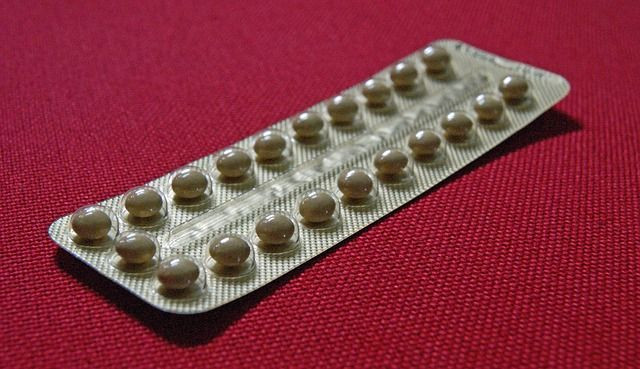Contraception Side Effects: 4 Ways Hormonal Birth Control Affects Men And Women

This week, news broke that trials for a male hormonal birth control shot were stopped after 20 of 320 men complained that symptoms such as depression, acne, and increased sex drive made the shot unbearable. However, as many as 10.6 million women who take the hormonal birth control pill deal with these same side effects every day, leading many to question why the study was shut down.
To better put the side effects into perspective, here is a side-by-side review of how hormonal birth control can affect both genders.
Depression
According to CNN, a total of 3 percent of the 320 men involved in the male hormonal birth control trial reported depression as a serious adverse side effect. In addition, one man involved in the study committed suicide, although the researchers concluded that his death was not linked to his participation in the trial. According to study co-author, Doug Colvard, the changes in mood experienced by men in the trial may be due to the fluctuations in the circulating progestin following bimonthly injections — similar to what women experience during their menstrual cycles regardless of whether they are on hormonal birth control.
Women may naturally experience changes in mood in relation to their fertility, however, new research has linked hormonal birth control to significant increases in depression risk for women. Elisabeth Lloyd, a faculty scholar at the Kinsey Institute and a professor of biology at Indiana University Bloomington told CNN that between 20 and 30 percent on women on the Pill experience depression so severe that they require medication to help deal with the symptoms. In addition, a Danish study published this September found that women on combined oral contraceptives, the most popular type of birth control, were 23 percent more likely to be prescribed antidepressants than non-users.
“Use of hormonal contraception, especially among adolescents, was associated with subsequent use of antidepressants and a first diagnosis of depression, suggesting depression as a potential adverse effect of hormonal contraceptive use,” the study concluded.
Sex Drive
Some men in the study reported increased libido as an adverse side effect of the hormonal birth control shot. This increase in libido may be explained by the injection making the brain believe that the body has higher levels of the hormone testosterone than it has.
"Testosterone is not a stimulant per se, but it is a steroid, and like a lot of steroids, it can give you a boost of energy,” explained Dr. Seth Cohen, a urologist at NYU Medical Center, CNN reported. “It can give you a boost of muscle mass. It can help with weight loss..."
Female hormonal birth control has also been noted to affect women’s sex drive, although in the opposite manner. According to Buzzfeed, the Pill lowers the amount of testosterone in a woman’s system, which may be responsible for the lack of sex drive experienced by as many as 15 percent of women on hormonal birth control. In addition, Buzzfeed reported that the birth control pill can make it more difficult for some women to self lubricate during arousal, which may also play a role in women’s decreased desire for sex.
Acne
Acne was also a problem cited among some of the men in the hormonal birth control trial. Again, this could be due to the body believing it has more testosterone, which, among many things, also signals for an increase in oil production, Teen Vogue reported.
Similar skin problems are also reported with female hormonal birth control. For example, although the Pill and other forms of hormonal birth control decrease the amount of testosterone in a woman’s body, sometime the progestin in female birth control can have a pseudo-testosterone effect, which can cause a surge in breakouts, Teen Vogue reported. Thankfully, these flare-ups are usually short-lived and in the long-run the Pill is actually noted to help reduce acne issues for some women.
Death
Although death was not reported as a direct result of the hormones for the men in the study, it is a real risk for every woman on hormonal birth control. Hormonal birth control is known to raise the risk of developing a life-threatening blood clot.
It's not entirely clear why, according to Buzzfeed, it may be that the estrogen and progestin in birth control increases the concentration of blood clotting components, which increases the risk of developing a clot.
Read More:
Birth Control Pill May Alter Woman's Brain Structure; Are There Real-World Consequences? Read Here
Birth Control Pills Increase Risk For Ischemic Stroke, But Only In Certain Women: Study Read Here
Published by Medicaldaily.com



























